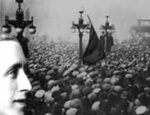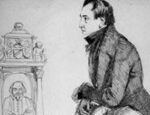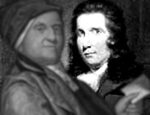Description
 Hear the rioting Midlanders disguised as the Roman plebeians in Shakespeare’s Coriolanus. The play was written, probably at Stratford upon Avon, in 1608. The previous three years had seen steep hikes in the price of wheat and barley, famine, and food riots. Shakespeare adapts his source, Plutarch’s Life of Coriolanus, a Greek biography composed in about 100 AD, to make the political crisis it portrays resemble closely the recent English experience.
Hear the rioting Midlanders disguised as the Roman plebeians in Shakespeare’s Coriolanus. The play was written, probably at Stratford upon Avon, in 1608. The previous three years had seen steep hikes in the price of wheat and barley, famine, and food riots. Shakespeare adapts his source, Plutarch’s Life of Coriolanus, a Greek biography composed in about 100 AD, to make the political crisis it portrays resemble closely the recent English experience.
In Plutarch’s text, the Roman populace are angry with the ruling class over a crisis caused by usury—unscrupulous lending of money by the rich to the poor at extortionate rates and with enslavement of debtors. But in Shakespeare’s play, Coriolanus faces a mob which is primarily protesting for another, additional reason, and it is exactly the same one as the Midlanders contemporary with the dramatist—unfair grain prices, the failure of the government to ensure adequate systems of food distribution, unregulated hoarding and widespread hunger. As the citizen says in the opening scene, the rich ‘ne’er cared for us / yet: suffer us to famish, and their store-houses / crammed with grain.’
 This new grievance of Shakespeare’s Roman mob was a direct response to the events of May and early June 1608. Several thousand peasants gathered at meetings in the Midlands, especially in Leicestershire, Northamptonshire, and Warwickshire, of which Shakespeare was a native. The disturbances, collectively known as ‘The Midland Revolt’ (1607), were led by and for peasants. The unofficial leader was a Northamptonshire tinker named ‘Captain Pouch’, or John Reynolds, who tried to organize a resistance by men, women and children to recent land enclosures. The response of the authorities, under orders from James I, was to impose curfews, erect gibbets, and send in the Deputy Lieutenants of Leicestershire to quell the rioters. After a pitched battle at Newton, near Kettering, in which about fifty people died, Captain Pouch and the others leaders of the rebellion were hanged and quartered. The figure of the autocratic Coriolanus, absolutely deaf to the pleas of his hungry populace, will have meant something all too familiar in the first decade of the 17th century.
This new grievance of Shakespeare’s Roman mob was a direct response to the events of May and early June 1608. Several thousand peasants gathered at meetings in the Midlands, especially in Leicestershire, Northamptonshire, and Warwickshire, of which Shakespeare was a native. The disturbances, collectively known as ‘The Midland Revolt’ (1607), were led by and for peasants. The unofficial leader was a Northamptonshire tinker named ‘Captain Pouch’, or John Reynolds, who tried to organize a resistance by men, women and children to recent land enclosures. The response of the authorities, under orders from James I, was to impose curfews, erect gibbets, and send in the Deputy Lieutenants of Leicestershire to quell the rioters. After a pitched battle at Newton, near Kettering, in which about fifty people died, Captain Pouch and the others leaders of the rebellion were hanged and quartered. The figure of the autocratic Coriolanus, absolutely deaf to the pleas of his hungry populace, will have meant something all too familiar in the first decade of the 17th century.







